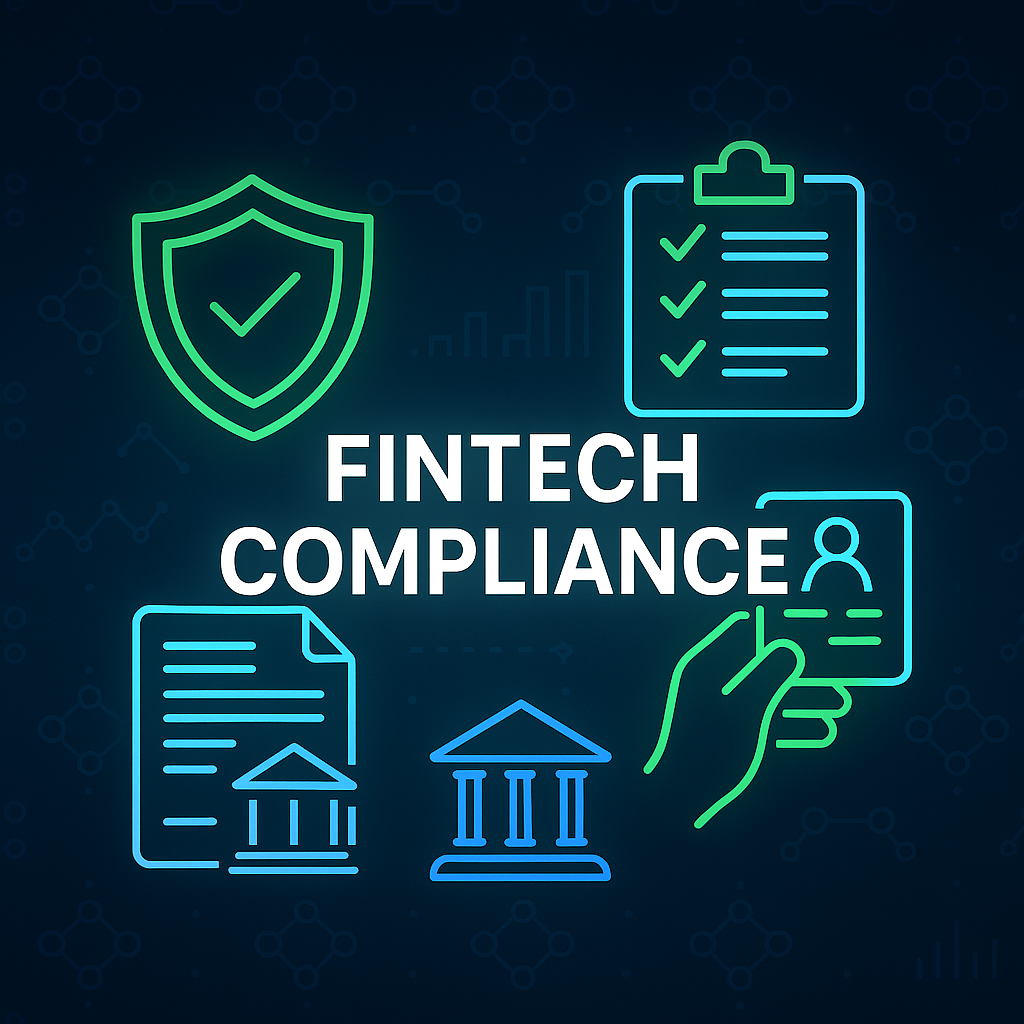If you’ve got this brilliant fintech idea buzzing in your mind.
Maybe it’s a slick payment app, a groundbreaking lending platform, or an investment tool that’s about to shake up Nigeria’s financial scene. You’re excited — and rightly so. But here’s the thing: no matter how game-changing your product is, if you don’t play by the rules, your dream can crash before it even takes off.
Trust me, I’ve seen it happen.
Nigeria’s fintech landscape is fertile ground for innovation — but it’s also a minefield of regulations, agencies, and legal frameworks. Navigating this complex maze is non-negotiable if you want to build something that lasts.
So, let’s break down how you can turn compliance into your secret weapon rather than a headache.
1. Start with a Solid Foundation: Register and License Your Startup Like a Pro
Imagine you’re building a skyscraper. You wouldn’t start stacking floors without a strong foundation, right? Same with your fintech startup.
Register with the Corporate Affairs Commission (CAC). It’s your business’s birth certificate — no company, no legitimacy.
Get the right licenses. Depending on what your fintech does, you might need licenses from the Central Bank of Nigeria (CBN), Securities and Exchange Commission (SEC), or others. For example:
If you’re into payment solutions, think Payment Solutions Service Provider or Mobile Money Operator licenses.
Lending? Then microfinance bank licenses come into play.
Investment platforms? SEC has a say.
Skipping this step? You’re building on quicksand.
2. Know Your Customer, Know Your Risk — The Golden Rule of AML and KYC
Here’s a truth bomb: fintech companies are frontliners in the fight against money laundering and fraud. That means you must know your customer (KYC) and be vigilant about suspicious activities.
Put in place rock-solid AML (Anti-Money Laundering) and CFT (Combating the Financing of Terrorism) policies.
Monitor every transaction — no matter how small.
Report suspicious activity to the Nigerian Financial Intelligence Unit (NFIU).
This isn’t just bureaucracy — it’s about protecting your company, your customers, and Nigeria’s financial system from bad actors. It’s tough, but if you do it well, you’ll earn trust that’s priceless.
3. Protect Your Customers Like Your Own Family — Data Protection and Cybersecurity
In a world where cyber threats lurk around every corner, data is gold — and you’re the guardian.
Comply with Nigeria’s Data Protection Act.
Get clear consent before collecting customer data.
Invest in encryption, firewalls, and regular security checks.
Follow the CBN’s cybersecurity framework to a T.
Because a data breach doesn’t just damage your reputation — it can destroy your business overnight.
4. Be Transparent and Fair — Consumers Are Watching
Consumers in Nigeria are savvy. They want fintech services they can trust.
Be upfront with your terms of service.
Avoid hidden fees or misleading information.
Have a clear and fair dispute resolution process.
Stick to ethical practices — don’t use shady marketing or aggressive debt collection.
Your reputation is your currency. Build it carefully.
5. Keep Your Books Clean and Your Governance Cleaner
Behind every successful fintech is solid accounting and governance.
Maintain accurate financial records.
Conduct audits regularly.
Separate personal from business finances.
Have a clear governance structure — a board of directors, internal controls.
This discipline isn’t glamorous, but it keeps you ready for investors, regulators, and growth opportunities.
6. Use the Sandbox — Innovate Within Safe Walls
Nigeria’s regulators get it — innovation needs space to grow.
Join the Central Bank’s Regulatory Sandbox.
Test your product under regulatory supervision.
Use RegTech tools to automate compliance.
This means you can innovate without fear — because you’re learning and adapting with regulators, not against them.
7. Never Stop Learning and Connecting
Regulations evolve, and so should you.
Stay updated on new laws.
Join fintech communities like FintechNGR.
Consult legal and compliance experts.
Surround yourself with people who help you grow.
8. Audit Yourself — Because What Gets Measured Gets Improved
Don’t wait for trouble to knock.
Regularly review your compliance policies.
Document every process.
Fix issues before they become crises.
Compliance is a continuous journey, not a one-time checklist.
Why Should You Care About All This?
Because fintech isn’t just about tech or money — it’s about people’s lives. When you do compliance right, you protect your users’ hard-earned money, build trust that leads to loyalty, and create a business that’s ready for the long haul.
Imagine the pride of knowing your startup didn’t just disrupt the market — it did so ethically, securely, and sustainably.
That’s the kind of legacy worth building.
CONCLUSION
Your Compliance Journey Is Your Success Story in the Making
Look, it might seem like a lot now — all these rules, checks, and licenses. But trust me, this is the price of admission to the big leagues.
Compliance isn’t your enemy. It’s your blueprint for success.
So, start strong. Stay informed. Protect your customers like family. Build a fintech startup that Nigeria can be proud of.
Your journey has just begun — and I can’t wait to see you lead the way.


